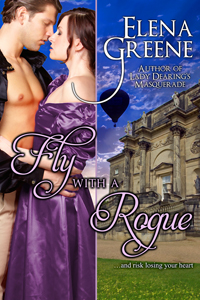Research Books You Can't Get Enough Of

Every one of my reference books has its own story to tell. Most of them entered my house to help a specific book but some came because I simply couldn’t live without it. And the books I’ll buy most often, whether or not I need them at that moment, are the ones about words.
I have a hardcopy edition of the Oxford Dictionary and Thesaurus (American Edition), plus the Merriam-Webster Dictionary and Thesaurus that resides on my computer. Yes, I know there are websites but what happens when you can’t reach the Internet? Been there, done that, gotten so messed up! When it comes to dictionaries, I’m a girl who insists on having backups for her backups.
I love foreign language dictionaries, too. Big, fat ones for commonly met languages like French and Spanish and German. Lots of smaller dictionaries on the same language – needed to ensure full coverage, of course – like Irish, Scots, and Galician Gaelic. If I ever found a dictionary for Breton (a distant relative of Gaelic), I’d probably invent a Breton character just so I’d have an excuse to use it.
One of the vast advantages to writing western historical is that it gives me an excuse to snatch up books on Old West lingo. Ramon Adams’ Western Words: A Dictionary of the Old West provides lovely definitions (including suggestions for alternatives) for words sometimes familiar and sometimes startlingly unusual.
As you might guess, I enjoy researching word histories. Well, it does come in handy when writing historicals! The Oxford Dictionary of Word Histories graces my shelves, full of concise life stories. Chambers’ Dictionary of Etymology goes far deeper into words’ ancestry and development, especially when they came from foreign languages. I particularly enjoy its discussion of pronunciation. One of my favorites is William Brohaugh’s English Through the Ages, which organizes words according to when they were in use. It’s therefore very easy to figure out what vocabulary a fourteenth century character would use, as opposed to a nineteenth century persona. This is far simpler than the more typical research technique of picking one’s brain for a word, then fumbling through a series of dictionaries and thesauri to see if it was in use – and meant the right thing – during that era. It’s also fascinating to get at least a hint of each era’s cadence, based on its proposed vocabulary.
Personally, I find phrase origins harder to research, probably because I seem to fumble for what’s the most historically important word in the phrase. But books about their lineage are endlessly fascinating, like Brewer’s Dictionary of Phrase & Fable. It boasts a delightful selection of characters from popular culture of all eras, as well as phrases. The Facts on File Encyclopedia of Word and Phrase Origins neatly sums up phrase after phrase and frequently suggests alternative or linked phrases.
And then there are the books, which select alternative ways to state something. It’s rare to find a thesaurus for phrases, like Jean Kent and Candace Shelton’s The Romance Writers’ Phrase Book.
But my true obsession is finding a good thesaurus. Great definition, who used it and when, plus suggestions for alternatives – heaven on earth! Alan Richter’s Sexual Slang differentiates very neatly by era, gender, and sexual preference, unlike most in its sub-genre, which makes it very helpful. Hugh Rawson’s Wicked Words gives the story behind a large number of unprintable terms, dating from Anglo-Saxon times to the present. Oh yes, it also gives era and suggests alternate usage, which can be very handy.
A previous employer of mine gave everyone access to all of the OED dictionaries – quotations, different languages, legal, etc. I could browse those darlings for hours, exploring the obscure paths that popped from apparently innocuous searches. One day, they will all be mine again…
What research books do you lust after? Have you ever shattered your budget on a reference book and, if so, which one?



Comments
Post a Comment